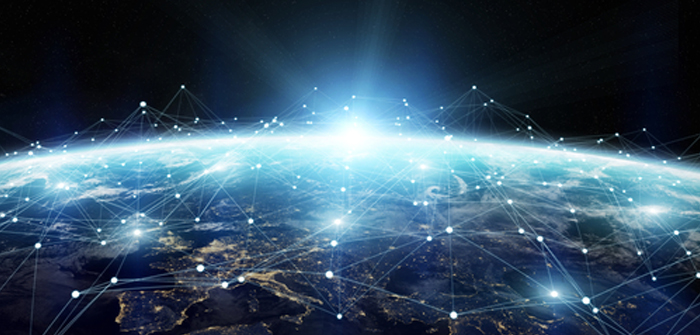The Internet of Things (IoT), voice activation, artificial intelligence and energy efficiency all play a major role in getting a global nervous system up and running to its full potential. This undertaking, aptly named a revolution, builds on the back of its digital revolution predecessor. The technological growth can be linked directly to similar evolutions, like the reduction in processor size and sophistication in processors.
Fitting a powerful computer in the palm of your hand makes the world feel a lot smaller to most people. An article about Forbes 2018 predictions mentions, “There is no doubt that all newly released products and installed assets will be connected with an increasing amount of sensors and intelligence embedded.” Soon many people will be able to claim full enjoyment of both the third and fourth revolutions, even those who are not yet connected.
Connecting Society Worldwide
The demand and work needed to ensure everyone can connect to the World Wide Web continue as a direct result of the designation that internet access is a human right. This decision was made in 2016 by the United Nations and shares the distinction along with the right for people to have clean water access, available food, shelter and electricity. The advancement ensures the possibility of a connected global nervous system and processors use less energy to function, so will the products they power.
A faculty newsletter by MIT further states that, “The mobile networks are as much a sensor net as a communications net: the location of and state of mobile devices, environmental monitors and civic infrastructure (medical, traffic, power, etc.) and similar sensors should be as easily accessible and useful as digital documents are today.” Today’s best mobile processors can play a large part in making this a reality with the marked improvements to connectivity, security and battery life that they offer. Users around the world will also enjoy near instant access to content due to the combination of lightning-fast throughput speed and increased signal strength.
Improvements to the Economy
Industrial revolutions change how we live, how we communicate and how we earn a living. It has been said that we are entering a fourth industrial revolution. Just as mass-produced vehicles, the washing machine and steam engines affected how we spend our time every day, a global nervous system involving IoT will have a significant impact on today’s societal time constraints as well. This revolution will be an enormous undertaking, create countless jobs in many fields and most significantly add jobs in the fields of electronics and technology. Newer technology will need to be built, maintained, upgraded and include ongoing security protection and updates. It seems that society and its business have played leap-frog with technology. Each innovation learns from another to work toward individual advancement. This is described well in Insights by Stanford Business and how “processors engage in integrated feedback loops whereby they collect information from the external environment and match it with human knowledge and computer-based data to make quick and effective decisions.”
The invention of powerful mobile processors has paved the way for the Internet of Things and the possibility of a complete global nervous system connecting everyone. As energy efficiency is improved and jobs are created to build the technology needed, a full view of this fourth industrial revolution may soon be realized. Regardless of the specific technology in our near future, it will require new jobs to be built and data to be managed.




